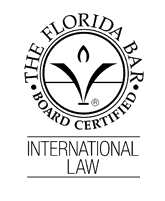
For
those who thoughts CBP's “
measured
and commonsense” approach for those that weren’t fully complying with the
Importer Security Filing (ISF or 10+2) rules would last forever, think
again!
Effective, July 9, 2013, CBP advised it would start the
liquidated damages phase of the Importer
Security Filing (ISF) enforcement
process. CBP will now make use of the newly activated cargo holds
in the Automated Cargo Environment (ACE) system to address non-compliance with
the ISF rule.
CBP may also withhold the release or transfer of
non-compliant ISF shipments at the terminal until the required ISF is filed. For
carrier violations of the vessel stow plan requirement, CBP may refuse to grant
a permit to unlade the merchandise. Once the ISF data is received and a security
assessment is made, additional enforcement actions including a Non-Intrusive
Inspection (NII) and/or intrusive exams may be initiated.
Liquidated Damages
CBP may also assess liquidated damages of up to
$5,000 per violation for the submission of an
inaccurate, incomplete or untimely filing.
CBP
Dec. 09-26 discusses "Guidelines for the Assessment and Cancellation of
Claims for Liquidated Damages for Failure to Comply with the Vessel Stow Plan,
Container Status Message, and Importer Security Filing Requirements." First
violations may be mitigated to $1,000-$2,000 - depending on the presence of
aggravating or mitigating factors. Some mitigating factors for the failure to
file a complete, accurate and timely ISF include
evidence of
progress in the implementation of ISF during the "flexible enforcement period,"
small number of violations compared to number of shipments, Tier 2 and 3 C-TPAT
status, remedial action.... CBP has advised that "no relief will
be granted if CBP determines that law enforcement goals were compromised by the
violation." Aggravating factors include multiple errors on your ISF! If you do
receive a Liquidated Damages claim, it is important you consult with an expert
to file a timely, persuasive Petition to CBP and address all relevant mitigating
factors to assure you receive the maximum reduction possible.
What's ISF Again?
The ISF rules require importers and vessel-operating carriers to provide
additional advance trade data on cargo shipments to CBP 24 hours prior to vessel
lading, pursuant to Section 203 of the Security and Accountability for Every
Port (SAFE Port Act) of 2006.
Importers must report the following 10 data elements on each
ISF:
- Manufacturer (or supplier) name and address
- Seller (or owner) name and address
- Buyer (or owner) name and address
- Ship-to name and address
- Container stuffing location
- Consolidator (stuffer) name and address
- Importer of record number/foreign trade zone applicant identification number
- Consignee number(s)
- Country of origin
- Commodity Harmonized Tariff Schedule (HTS) number
From the carrier, 2 data elements are required:
- Vessel stow plan – required for arriving vessels with containers.
- Container status messages – required for containers arriving via vessel.
Hence, 10+2!
For shipments consisting entirely of
freight remaining on board
(FROB) cargo or goods intended to be transported in-bond as an
immediate entry or transportation and exportation entry, the following 5 data
elements are required:
- Booking party name and address
- Ship-to name and address
- Commodity Harmonized Tariff Schedule (HTS) number
- Foreign Port of Unlading
- Place of delivery
In order to avoid liquidated damages and untimely delays with your cargo,
full ISF compliance is now required. Since we're talking compliance, do you
have your
pre-compliance
plan established? If not... Let's talk!
If you have any questions on the listed requirements or need assistance with
cargo detained as a result of this new enforcement phase, please feel free to
contact
me, and I'm happy to assist you with any ISF or CBP related question!
 For
those who thoughts CBP's “
For
those who thoughts CBP's “


